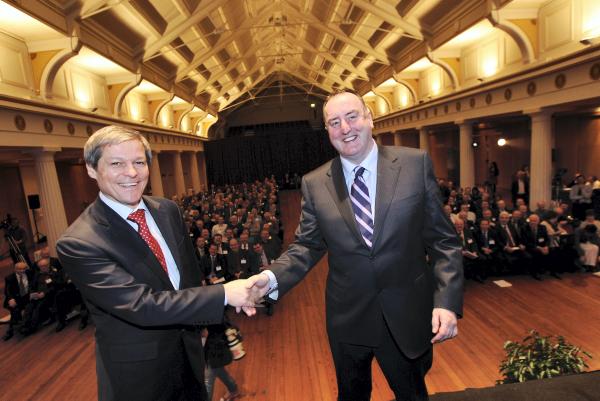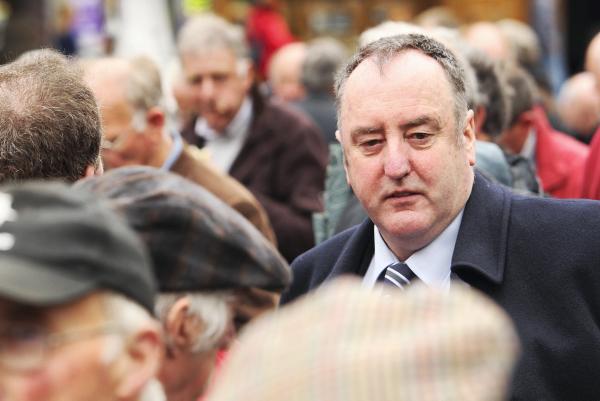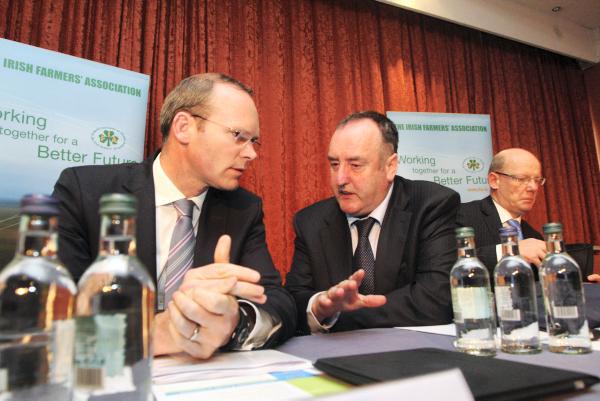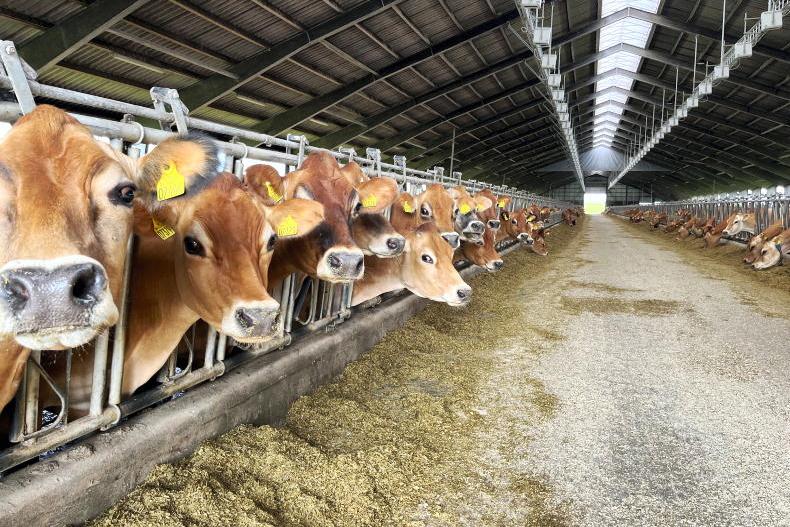John Bryan is about to leave office. Following four years as IFA president, he hands over the reins to Eddie Downey at next week’s AGM.
He is happy to do so. “It’s one of the strengths of IFA – every four years, a new team comes in with new ideas. Eddie has a strong team supporting him, and he has the mandate of the full organisation.”
Bryan himself was elected with a strong mandate to protect the Single Farm Payment system.
Looking back, it has dominated from the beginning.
“Within two weeks of being elected, I was in Brussels lobbying for a well-funded CAP budget. At the time, cuts of 30% were being proposed. A key moment was when we got the French and the Germans to support us on maintaining the budget. Getting COPA over to Dublin and getting the French, Spanish, Italians and Portuguese to sign a document rejecting the Ciolos proposals proved vital. We had to reject flattening and regionalisation at every turn, and we needed allies.
“It’s always about forming alliances. Europe is so diverse, and the Commission is so well resourced that you can’t change things quickly, and you can’t change them alone.”
When the reform proposals were finally unveiled, they envisaged almost full flattening of payments by 2019. “Ciolos wanted to break the historical link completely – it would have destabilised Irish and European farming. The Irish presidency was always the best chance to achieve a deal. Minister Coveney had a similar overview to IFA; that was important.”
Ciolos attended the IFA agm this time two years ago, along with Taoiseach Enda Kenny, and Minister Coveney.
John Bryan hosted them, having spent the weekend at his son James’s side. He was hospitalised following an unprovoked attack in Limerick, where he was studying. It highlights the demands the role of IFA president places on the individual and his family.
JOHN BRYAN ON:
The final CAP package
“I always said that minimising cuts to direct payments was my priority, and equally that this would only be part of a fair outcome in tandem with a fully-funded Pillar II.
‘‘I am confident that the final position, at or very near 47% of matching funds, will allow for Disadvantaged Area Payments, an agri-environmental scheme, and targeted schemes for vulnerable sectors.”
FH 2020
‘‘Brendan Smith must be credited with putting Food Harvest 2020 in place. Some believed that the targets were too ambitious, but today’s food export valuation shows just how much progress has been made. I accept that much of the value growth is due to price increases, but these were badly needed and fully justifiable. There has also been progress on product development and penetration of the best markets.
‘‘We have world-class Irish companies, such as Kerry and Glanbia, and they are leading the way for others. The fact that 25,000 extra jobs have been created in the sector shows how dynamic it can be.”
Farm incomes
‘‘The big threat is input costs. We have to get our production costs down. Farmers have to get a margin. We have to fight our corner for everything we buy and everything we sell, and we need the collective strength of IFA to back us up as individual farmers.
‘‘Another threat is trade deals. The EU must stress standards and traceability of food. The European consumer is entitled to demand food of the highest quality, but they must pay for the costs imposed by not using GMs, and elevated animal welfare standards. We can’t lead on standards and get a world market price.”
Glanbia
“I always felt that the first proposal left the co-op with too small a shareholding in the plc (10%).
‘‘The joint venture, on the other hand, retained 40% of a much more valuable plc, delivered a spin-out worth three times as much to farmer co-op shareholders and ensured a fully-funded GIIL. It has proven a good deal for the co-op and the plc so far.’’
Retail sector
“It is with regret that I’m leaving office without proper legislation governing the retail sector. It’s disappointing to consider that in Britain, where food accounts for only 1% of GDP, they have put in place a code of practice and an ombudsman.
‘‘Yet, in Ireland, despite our constant lobbying of both this Government and its predecessor, we are still waiting.’’
Horsemeat scandal
“It shows that while there is full traceability for animals from birth to slaughter, and there is traceability at primary processing, there is not sufficient supervision of secondary processing and further manufacturing.
‘‘There are two main lessons – firstly, the Department must increase the inspection regime up the supply chain, verify country of origin and ensure that food label information is complete and verifiably accurate. Retailers were pushing for burgers for 6c. They effectively wanted food for nothing, and that’s not possible. It was a wake-up call for everyone in Europe.
‘‘A realistic price for food and a ban on below-cost selling would be helpful.
Retailers have taken the easy option; they have tightened up specifications. They want a top quality product, but getting them to pay a fair price is the hard part. At first, retailers paid a small premium for in-spec product. Now, a year on, the specifications are much higher, and they want to pay less.
‘‘The primary producer ends up carrying the can in the end – it’s our job as farmer representatives to fight against those market forces created by the dominance of a handful of retailers and consolidation in the processing sector.”













SHARING OPTIONS